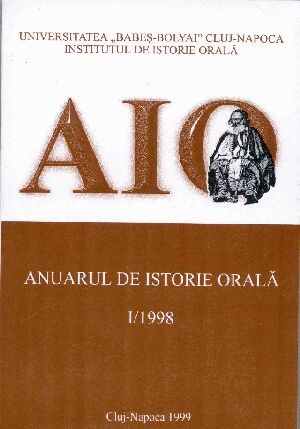FENOMENUL PITEŞTI. REPRESIUNE EXTREMĂ ÎN VARIANTĂ ROMĂNEASCĂ
THE PHENOMENON OF PITEŞTI. EXTREME OPPRESSION FROM ROMANIAN POINT OF VIEW
Author(s): Almira EnuţăSubject(s): History
Published by: Argonaut
Summary/Abstract: In a totalitarian state, having an illegal judicial system and also against democracy, the institution of jail received political conotations. The political prisoners will be treated different from other categories of prisoners. They were bad treated to extermination. The study deals with this kind of punishment the communist system appealed to, by the help of specific Oral History methods. In order to restrict the area we took into account only one prison for the specific methods of extermination. The prison of Piteşti is regarded as a “students jail” since 1948, when the prisoners had been separated according to their training. The students were treated using new methods to defeat their physical and moral resisttance; those methods were extremely harsh and known as the “phenomenon of new training”. These methods will be “exported” to other jails as Gherla, Târgşor, Târgu-Ocna, Canal and so on, where also oher categories of prisoners will “benefit” of them: pupils, workers, intellectuals. To give up details, that is torments and exploiters because there are lots of studies concerning them, we were interested in this phenomenon as a individual memory depicted from a collective one. From methodological point of view we appeal to a half directed questionnaire, offering the possibility to receive ample answer. Due to this kind of interview and according to the relationship interviewer-interviewee, the directed dialogue became a biographical monologue. The existance of some symbolic images or common feelings helped us to structure the information as follows: the temptation to confess, subjective perceptions of an unusual phenomenon, the religious dimension, stages of initiation, individual vs. community, characteristics of memories. In addition to the novelty of documents received, the mechanism of sellection the memories, the interviewee’s subjectivity and the temptation to morality even to mythicism are considered to be more genuine.
Journal: Anuarul Institutului de Istorie Orală
- Issue Year: 1999
- Issue No: I
- Page Range: 386-427
- Page Count: 42
- Language: Romanian

